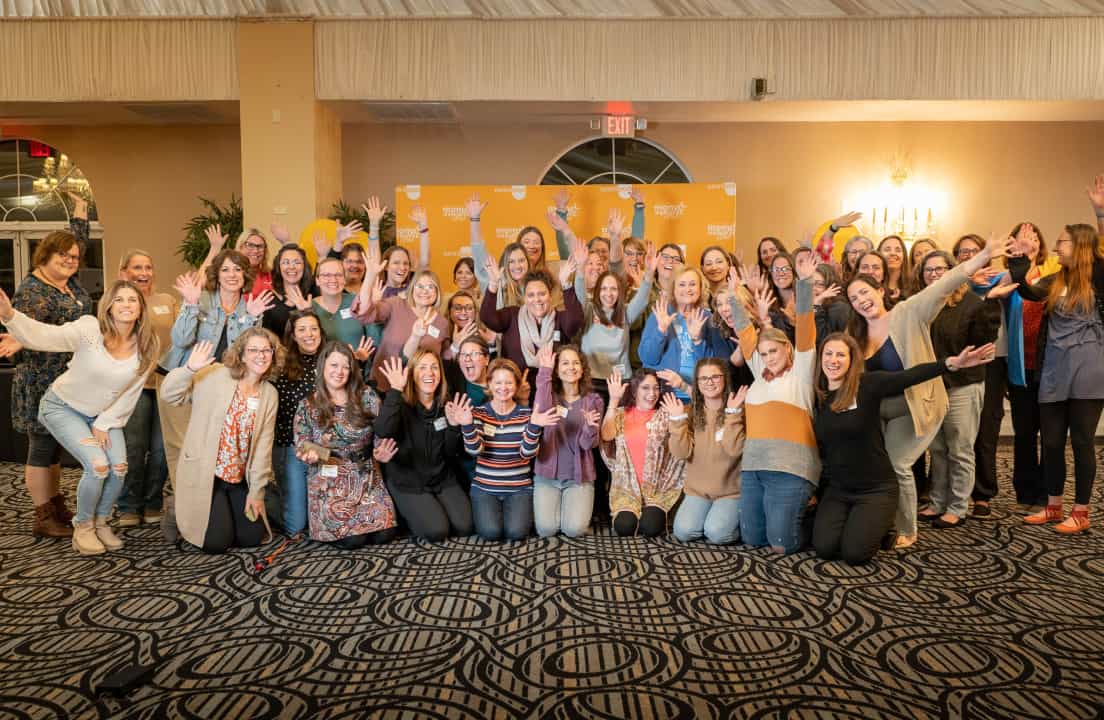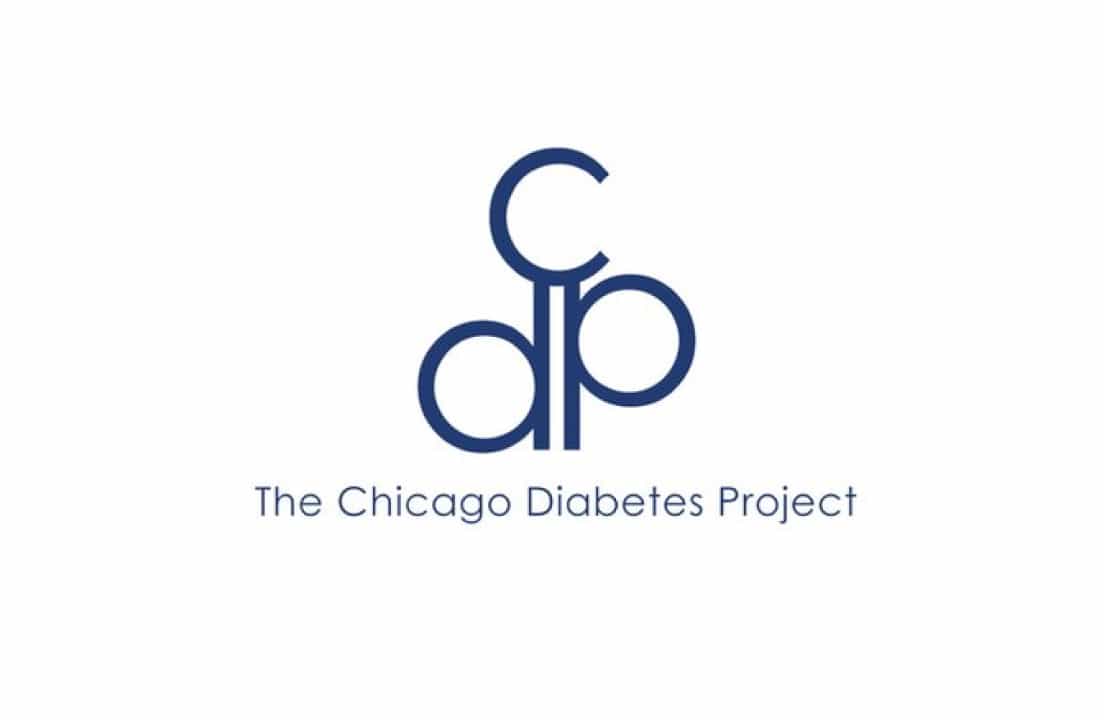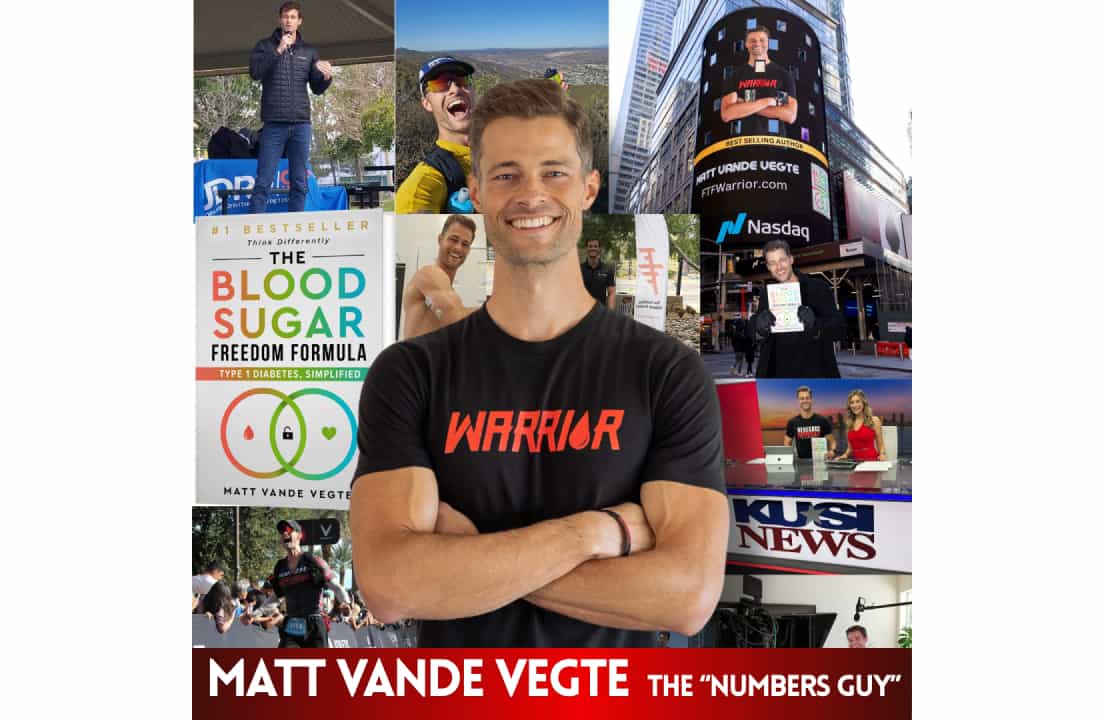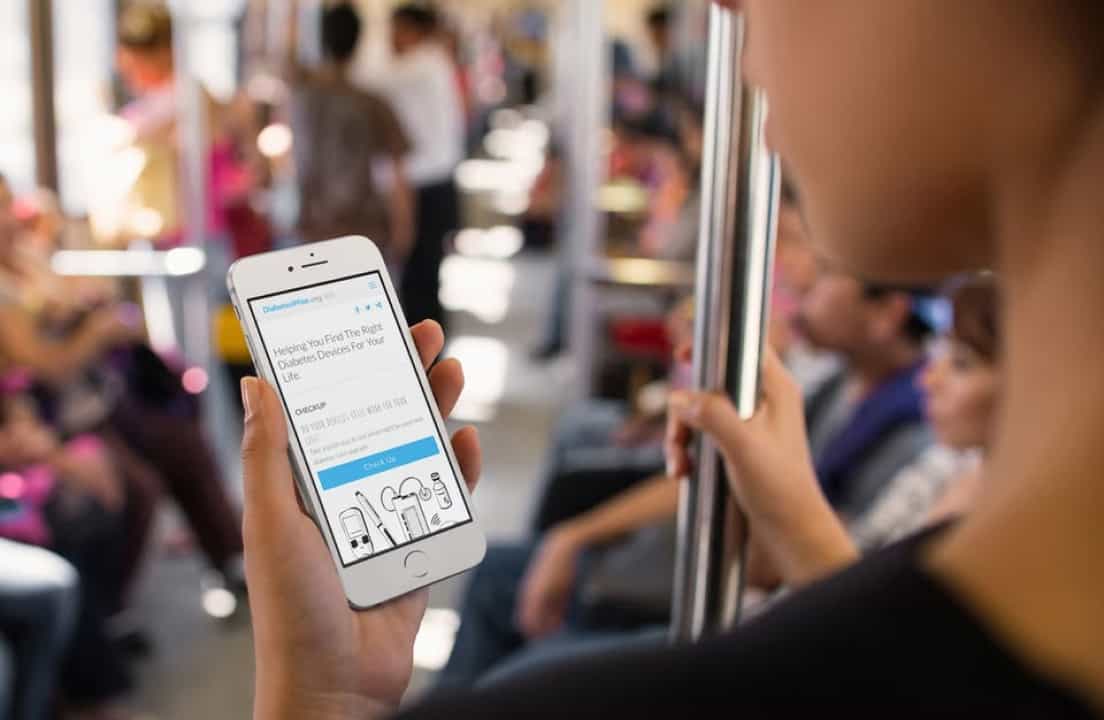T1D Guide
T1D Strong News
Personal Stories
Resources
T1D Misdiagnosis
T1D Early Detection
Research/Clinical Trials
Diabetes Psychologist and Author Mark Heyman
Dr. Mark Heyman, or Dr. Mark as he’s known in the T1D community, is a skilled psychologist who guides type ones through the emotional rigors of their diagnosis, providing coping mechanisms to deal with diabetes anxiety, burnout, and fears associated with low blood sugar.
%20(1).png)
Dr. Mark has dedicated his career to helping other T1D warriors like himself tackle the trials of type 1 diabetes (T1D). His mission is to transform mental health support for people with T1D, and he believes low blood sugar anxiety may be the biggest challenge to overcome. He should know—he beat it himself.
About Dr. Mark Heyman, PhD, CDCES
Dr. Mark Heyman, a licensed diabetes psychologist and Certified Diabetes Care and Education Specialist (CDCES), helps type 1 individuals conquer the fear of low blood sugar and regain control of their lives.
He is also the CEO of the Center for Diabetes and Mental Health (CDMH) in San Diego, CA, host of the Live Free with T1D podcast, and author of Diabetes Sucks AND You Can Handle It.
Heyman has shared his mental health wisdom with Beyond Type 1, Breakthrough T1D (formerly JDRF), and the American Diabetes Association (ADA). He also provides resources, tips, and insights through daily posts on his digital platform sites.
Adult Onset Type 1 Diabetes
Heyman was diagnosed as a young adult at 21, in his third year of college in 1999. His symptoms were pretty classic—he remembers experiencing excessive thirst, frequent urination, exhaustion, blurry vision, and weight loss. With no family history or familiarity of type 1 diabetes, Heyman just expected his symptoms to go away with a good night’s sleep, but they never did.
Heyman went to the doctor, who sent him to the ER, where he was diagnosed right away with T1D. His blood sugars were in the 800s, though fortunately, he was not in diabetic ketoacidosis (DKA). He spent one night in the hospital and met with an endocrinologist the next day.
Even though Heyman was away at college, he said that he received a great deal of family support. As a young adult, he began managing the disease on his own, which grew to be challenging. At the time of his diagnosis, Heyman felt an overwhelming anxiety about his blood sugars. “The internet in 1999 lacked the resources we have today—no social media platforms or informational support.”
When he experienced diabetes burnout, he searched the two major organizations, Breakthrough T1D and the ADA, but found them both lacking. Heyman also tried some diabetes support groups that were more depressing than helpful.
“I remember one was in the basement of a hospital, and we just sat around; most of the group was significantly older than me. They talked about their A1cs, but it just wasn’t the empowering, uplifting experience I was searching for.”
Heyman said at the time of his diagnosis, he thought about attending law or business school but had no set career plans. His diagnosis helped decide his future path. He wondered, “How can I make this really valuable and fulfilling for myself and others.” As he searched for his own guidance, he decided to become the resource he needed.
%252520(1).jpeg)
The Big Turning Point
“I realized there was nothing out there to support me and other people with diabetes,” Heyman said. “That was actually why I decided to become a psychologist. Although I didn’t really think that I would focus only on diabetes.”
Heyman understood he needed a compelling story to get into the competitive graduate program and used his diabetes diagnosis. “It kind of became a self-fulfilling prophecy. It took a long time before I was able to focus solely on diabetes.”
Heyman received his PhD in Clinical Psychology from George Washington University and completed his psychology internship at the UCSD School of Medicine. Upon graduating from grad school, there was a lot of focus on post-traumatic stress disorder (PTSD), especially in the VA system, so Heyman concentrated on that for a little while in his private practice.
The Flywheel Effect
Heyman experienced some really scary lows when he was first diagnosed, but at the time, he said they didn’t phase him.
“But about 10 years later, I had a couple more scary lows. I was finishing up grad school to become a psychologist. And I thought I was going to conquer this and make it go away for myself. I’m going to use everything I know about psychology to make it go away— and I failed.”
Then, 10 years into his psychology career, Heyman helped a patient with diabetes and saw there was a big need for emotional support among T1Ds.
“People were looking for professional help and resources, and as I began to help one, more and more requests came through – it became a flywheel that really worked out well for me and hopefully for the people I worked with.”
Over several years, Heyman gradually began transitioning to treating diabetes patients only. Today, Heyman has a small practice where he sees a few patients but has really shifted his focus to building scalable programs, resources and online tools for people with type 1 diabetes.
“One thing I realized in my work was that there are some people with diabetes who need to see me, or someone like me, but everyone with diabetes needs something, and my goal was to provide people with the support they need in a way they are able to access it, use it, and implement it.”
Diabetes Sucks, AND You Can Handle It
Heyman said that his fear of low blood sugar attacks grew increasingly worse over time.
“I felt like my world got smaller and smaller and smaller because I was trying to push those feelings of fear away. But the more you try to push something away and avoid it, the more it comes back to bite you.”
Heyman wrote a book to help T1Ds navigate through these murky waters. The non-fiction guidebook, “Diabetes Sucks, AND You Can Handle It,” is an actionable toolkit for type ones to manage the burdens and anxieties of living with the disease. Heyman discusses how life becomes easier when you accept your challenges and the fact that, yes, T1D sucks—but you can handle it.
When Heyman was gripped with his own anxiety, he grasped the best way he could get over his fear of lows was by recognizing that the fear may not go away.
“And if it doesn’t go away, what do I have to do to get myself living the life I want to live? And the reality was that I could handle the fear.”
To be able to tolerate and sit with the fear helped get him through it. “Knowing that I’m safe and taking action is really the best way of doing it.”
Heyman discovered he was already doing this with his PTSD patients, and he could use that treatment for himself. “So after many years of trying, I finally came to the place of sitting with it, recognizing that it’s scary, but I also know that I’m safe. Moving forward that way was transformative to overcoming my fear of lows.”
As Heyman struggled to manage his diabetes effectively, he began a new type of therapy called Acceptance and Commitment Therapy (ACT)—a psychological treatment around getting people to take action with things they can change and accept the things they can’t change.

Skill Building Repertoire
Heyman concluded that most people don’t need psychotherapy in the traditional sense; they need to gain coping life skills. These important healing steps are about skill building.
- Stress tolerance skills
- Reframing your story skills
- Making sure you have a purpose skills
- Taking action even when you’re scared skills
“The reality is most people don’t need to see a therapist; they just need to learn the skills and tools to cope,” said Heyman.
T1D Parents
Heyman still sees patients individually, in groups and through his online resources, but he’s moved away from the one-on-one sessions. He also provides resources to T1D parents and helps them navigate the tribulations of managing their child’s diabetes. “I’ve developed something specifically for parents using the same framework and model.”
Create a Personal Plan
Heyman also guides T1Ds to create their own personal plans. “People really need to do this on their own. Because they want to have ownership,” he said. “It’s really about reframing your story about what will happen. If you go low during exercise, yes, it means you have to stop, but it doesn’t mean you can’t start again. It means you have to be prepared for lows.”
Heyman knows from experience these issues are not easy. “We have to sit with the distress when it is challenging,” he said.
Heyman had a patient tell him, “I really changed my mindset to ‘I’m not treating my panic, I’m only treating my lows.’”
Heyman's other tool, beyond his digital platform (Instagram, Facebook, and a possible YouTube channel in the future), is his podcast, Live Free with T1D, where he coaches listeners on ways to build their own T1D stress management plan.
Low Blood Sugar Anxiety
“Low blood sugar can be annoying, but it shouldn’t stop you from living your life,” said Heyman. His goal is for patients to lead the life they were meant to live. One way to accomplish this is through a five-step process.
Heyman’s 5-Step Process
1. Figure out your ‘why.’
It’s not comfortable, but you have to conquer your fear of lows.
2. Learn to sit with discomfort.
You have to realize even if you’re uncomfortable, it doesn’t mean you’re unsafe. It’s not easy or fun, but it’s an important step.
3. Rewrite your story.
By rewriting your story, being more realistic about who you are is game-changing.
4. Lead with action.
“This is where the rubber hits the road,” Heyman said. “We let our emotions take over our decision making, but by leading with action, pushing through your fear…You can do it. It’s invaluable.”
5. Rinse, Repeat and Refine.
Heyman said, “Conquering your fear with diabetes is a journey. Find out what works for you. Say yes to life. “
Heyman encourages patients to prioritize their emotional health and acknowledge their feelings without judgment.
Dr. Mark’s Other Tips
- Practice self-compassion.
- Seek support from others with T1D.
- Know your emotional responses are valid and normal.
- Find the strategies that help you manage the stress of T1D.
- Preparation is key.
- Stay calm and build internal mantras like “I am stronger than my fears.”
Accept the Challenge
Managing diabetes is a 24-hour balancing act between eating, dosing, exercising, sleeping and controlling blood glucose numbers. What’s more, you also must be in charge of your mental health.
Heyman advises someone newly diagnosed first to know it’s going to be okay. “It’s okay to mourn the loss of what you had. It’s okay to be scared, and not only okay but normal to be those things. But know that they’re not going to last forever.”
“Get as much support as you can from others who’ve been through this before. Learn from others’ experiences. If you’re having trouble adjusting, ask for help. And hear their stories. And tell your story; it will only help the diabetes community.
After overcoming his fear of low blood sugar attacks, Heyman now skis, scuba dives, and hikes with his family.
%252520(1).jpeg)
Today, Heyman lives with his wife and 5-year-old daughter in San Diego, CA, where he provides diabetes education through training courses, support groups and one-on-one therapy. His evidence-based mental health treatments and programs have helped hundreds of people with T1D.
You can follow Heyman on Instagram @thediabetespsychologist, on Facebook or reach him by email at mark@cdmh.org on his website, TheDiabetesPsychologist.com.


.webp)





.webp)

.jpg)
.jpg)

.jpg)
.jpg)

.jpg)
.jpg)
.jpeg)
.jpg)
.jpg)

.jpg)
.jpg)
.jpg)
.jpg)

.jpg)
.jpg)

.jpg)


.jpg)
.jpg)

.jpg)
.jpg)

.jpg)
.jpg)



.jpg)
.jpg)
.jpg)


.jpg)

.jpg)
.jpg)
.jpg)
.jpg)
.jpg)
.jpg)

.jpg)

.jpg)
.jpg)
.jpg)
.jpg)
.jpg)
.jpg)

.jpg)
.jpg)

.jpg)
.jpg)
.jpg)

.jpg)
.jpg)



.jpg)

.jpg)
.jpg)

.jpg)
















.jpg)



.jpg)




.jpg)










.webp)